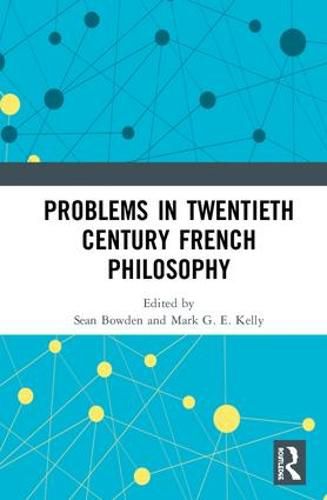Readings Newsletter
Become a Readings Member to make your shopping experience even easier.
Sign in or sign up for free!
You’re not far away from qualifying for FREE standard shipping within Australia
You’ve qualified for FREE standard shipping within Australia
The cart is loading…






Read through the lens of a single key concept in twentieth-century French philosophy, that of the problem , this book relates the concept to specific thinkers and situates it in relation both to the wider history of philosophy and contemporary concerns.
How exactly should the notion of problems be understood? What must a problem be in order to play an inaugurating role in thought? Does the word problem have a univocal sense? What is at stake - theoretically, ethically, politically, and institutionally - when philosophers use the word? This book addresses these and other questions, and is devoted to making historical and philosophical sense of the various uses and conceptualisations of notions of problems, problematics, and problematisations in twentieth-century French thought. In the process, it augments our understanding of the philosophical programs of a number of recent French thinkers, reconfigures our perception of the history and wider stakes of twentieth-century French philosophy, and reveals the ongoing theoretical richness and critical potential of the notion of the problem and its cognates.
Working through the twentieth-century, and focussing on specific thinkers including Foucault and Deleuze, this book will be of interest to all scholars of French philosophy.
This book was originally published as a special issue of Angelaki.
$9.00 standard shipping within Australia
FREE standard shipping within Australia for orders over $100.00
Express & International shipping calculated at checkout
Read through the lens of a single key concept in twentieth-century French philosophy, that of the problem , this book relates the concept to specific thinkers and situates it in relation both to the wider history of philosophy and contemporary concerns.
How exactly should the notion of problems be understood? What must a problem be in order to play an inaugurating role in thought? Does the word problem have a univocal sense? What is at stake - theoretically, ethically, politically, and institutionally - when philosophers use the word? This book addresses these and other questions, and is devoted to making historical and philosophical sense of the various uses and conceptualisations of notions of problems, problematics, and problematisations in twentieth-century French thought. In the process, it augments our understanding of the philosophical programs of a number of recent French thinkers, reconfigures our perception of the history and wider stakes of twentieth-century French philosophy, and reveals the ongoing theoretical richness and critical potential of the notion of the problem and its cognates.
Working through the twentieth-century, and focussing on specific thinkers including Foucault and Deleuze, this book will be of interest to all scholars of French philosophy.
This book was originally published as a special issue of Angelaki.